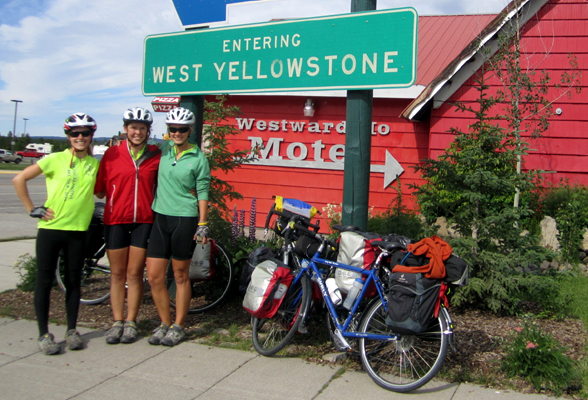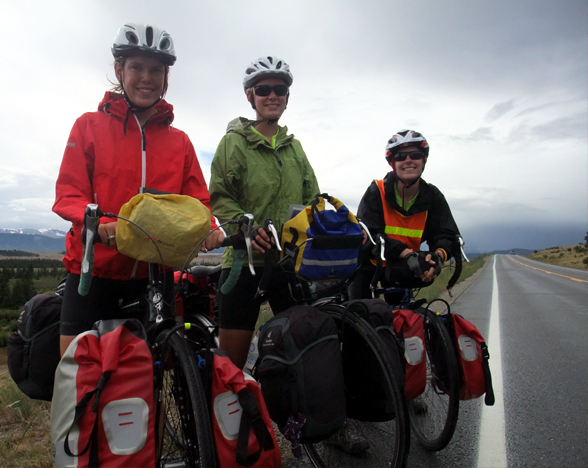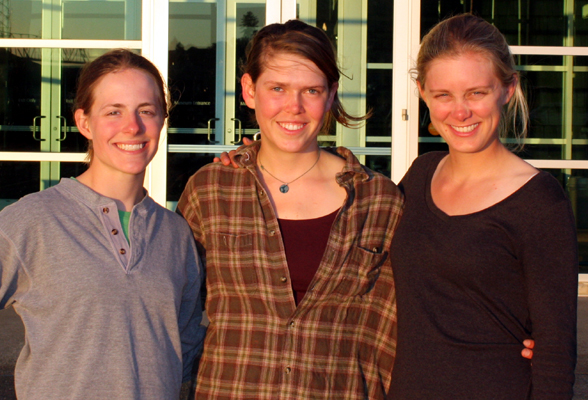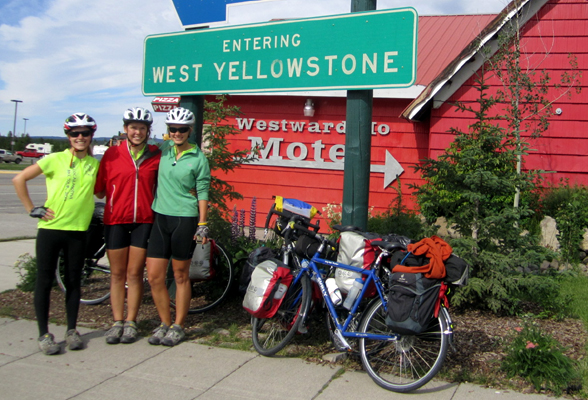The Localmotive Bike Tour… And The Food You Eat

Dear Bicycle Touring Pro and the cycling community,
On August 16, we reached the end of our cross-country trip in Astoria, Oregon after spending two and a half months on the Trans-America Trail. Apart from the simple rewards of bike touring, including a Mickey Mouse glove tan and the lure of an ever-changing horizon, it was the interactions we had with others along the trail that made this experience so memorable. Our bikes served as great conversation starters, and people willingly offered us their stories, advice, and even their yards to sleep in. When it came time to leave, they never failed to tell us about the “big hill” coming up. “It’s just awful,” they would say, “goes on and on forever…” We’d look at each-other and smile; after all, as any east-to-west cross-country cyclist will know, nothing can quite beat the Appalachian Mountains.
Headed west, we also passed through a constantly evolving agricultural landscape. As the “Localmotive Bike Tour,” we stopped at several Girl Scout camps and a YMCA camp to speak with kids about the benefits of local farming and organic foods. We also did our best to support local farmers by stopping at fruit stands on the side of the road and visiting local farms that raised everything from sheep to vegetables. The majority of our connections, however, came from interacting with local community members and referring them to our blog, which served as a great medium to share our mission with others. What we discovered while speaking with others along the trail was symptomatic of our nation’s struggle to redefine our relationship with food as a whole.
Ask a group of first graders where their food comes from, and many will answer “the grocery store.” Ask a corn farmer in Kansas where his food comes from, and he’s more likely to say California than Kansas. Not the answers you’d expect? What we witnessed during our trip is that the majority of food is produced by farms that have little in common with the Fisher Price model of our childhood imaginations – think a little red barn, farm animals, and a farmer with overalls and a straw hat. Instead, large-scale industrial farming is the norm, characterized by fields of a single crop spanning thousands of acres, pesticide use that harms the surrounding environment, and confined animal feeding operations (CAFOs). However, we met several large-scale farmers who are taking initiatives to conserve the environment, such as minimizing water use, while still maintaining non-organic practices. While this still leads to plenty of questions about pesticide use, food security, and healthy eating, it is clear that the general mentality is moving in a positive direction.
From Virginia to Oregon, we were consistently impressed by the efforts of individuals and communities to conserve resources, improve their kids’ school lunches, eat more locally, and build truly sustainable communities. It is certainly the case that local initiatives are gaining a stronger foothold across the country as people make the connection between the farms that produce their food and what’s on the dinner table. What we have now might not be perfect, but it’s a great place to start.
To the bicycle touring community that made this scholarship possible, thank you so much for your support and encouragement before and during our ride. Our experiences have inspired us to continue supporting local food programs and to share our knowledge of critical food issues. We will be giving $50 back to the Bicycle Touring Pro scholarship in order to help fund another touring group next summer, and will be donating $200 to a youth group along the trail in order to support the establishment of a community garden.
Best wishes and healthy eating,
Katie, Kerstin, and Lauren

To learn more about the Localmotive Bike Tour and see photos from the cross-country bike ride, be sure to visit the official website at: http://localmotive2011.wordpress.com



Great Job Ladies! And a Great Cause too!